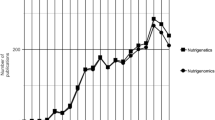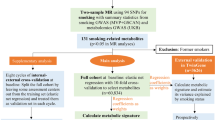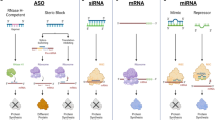Abstract
The latest genome-wide association studies (GWAS) have re-energized our effort to understand the genetic basis of atherosclerotic cardiovascular disease. Although the knowledge generated by GWAS has confirmed that mediators of inflammation and perturbed lipid metabolism are major players in cardiovascular disease (CVD) development, much of individual disease heritability remains unexplained by the variants identified through GWAS. Moreover, results from interventions that aim at the pharmaceutical modification of lipid parameters fall short of expectation. These elusive treatment goals based on heritability studies highlight a key supportive, and perhaps even primary, role of nutritional therapy to achieve better health outcomes. Nonetheless, effective and specific interventions for CVD prevention using principles of “personalized” nutrition require a better knowledge of gene-diet interactions, an area that remains poorly explored. Dietary fatty acids such as omega–3 polyunsaturated fatty acids (PUFAs) are an excellent example of a widely studied “environment” that interacts with the genetic makeup in relation to CVD. A thorough exploration of the nutrigenomics and nutrigenetics of omega–3 PUFAs is key to understanding the etiology, and developing effective preventive measures. In this review, we will summarize the current state of knowledge of genetic interactions with omega–3 PUFAs in modulating lipid metabolism and inflammation, and defining health outcomes. Nutrigenetics and nutrigenomics are still in their infancy with respect to CVD prediction and therapy. Integration of the progress in the omics, including metabolomics, lipidomics, transcriptomics, and proteomics, coupled with advances in nutrigenomic and nutrigenetic research will move us towards personalized medicine as the ultimate paradigm of responsible clinical practice.



Similar content being viewed by others
References
Papers of particular interest, published recently, have been highlighted as: • Of importance •• Of major importance
Deloukas P, Deloukas P, Kanoni S, Willenborg C, Farrall M, Assimes TLW, C. et al. Large-scale association analysis identifies new risk loci for coronary artery disease. Nat Genet. 2013;45(1):25–33.
Ray KK, Seshasai SR, Erqou S, Sever P, Jukema JW, Ford I, et al. Statins and all-cause mortality in high-risk primary prevention: a meta-analysis of 11 randomized controlled trials involving 65,229 participants. Arch Intern Med. 2010;170(12):1024–31.
Lavigne PM, Karas RH. The current state of niacin in cardiovascular disease prevention: a systematic review and meta-regression. J Am Coll Cardiol. 2013;61(4):440–6.
Gotto Jr AM, Moon JE. Recent clinical studies of the effects of lipid-modifying therapies. Am J Cardiol. 2012;110(1 Suppl):15A–26.
• Fenech M, El-Sohemy A, Cahill L, Ferguson LR, French TA, Tai ES, et al. Nutrigenetics and nutrigenomics: viewpoints on the current status and applications in nutrition research and practice. J Nutrigenet Nutrigenomics. 2011;4(2):69–89. A nice overview of different aspects of nutrigenetics and nutrigenomics in nutrition research, in optimizing well being and control, management and treatment of diseases including cancer, metabolic syndrome and cardiovascular diseases.
•• Stylianou IM, Bauer RC, Reilly MP, Rader DJ. Genetic basis of atherosclerosis: insights from mice and humans. Circ Res. 2012;110(2):337–55. A comprehensive review of the genetic basis of atherosclerosis, summarizing data on more than a hundred genes affecting pathogenesis in mouse models and the latest data from genome wide association studies.
Lusis AJ. Genetics of atherosclerosis. Trends Genet. 2012;28(6):267–75.
Maouche S, Schunkert H. Strategies beyond genome-wide association studies for atherosclerosis. Arterioscler Thromb Vasc Biol. 2012;32(2):170–81.
Inouye M, Ripatti S, Kettunen J, Lyytikainen LP, Oksala N, Laurila PP, et al. Novel Loci for metabolic networks and multi-tissue expression studies reveal genes for atherosclerosis. PLoS Genet. 2012;8(8):e1002907.
Guevara NV, Kim HS, Antonova EI, Chan L. The absence of p53 accelerates atherosclerosis by increasing cell proliferation in vivo. Nat Med. 1999;5(3):335–9.
Merched AJ, Williams E, Chan L. Macrophage-specific p53 expression plays a crucial role in atherosclerosis development and plaque remodeling. Arterioscler Thromb Vasc Biol. 2003;23(9):1608–14.
Merched AJ, Chan L. Absence of p21Waf1/Cip1/Sdi1 modulates macrophage differentiation and inflammatory response and protects against atherosclerosis. Circulation. 2004;110(25):3830–41.
Holdt LM, Beutner F, Scholz M, Gielen S, Gabel G, Bergert H, et al. ANRIL expression is associated with atherosclerosis risk at chromosome 9p21. Arterioscler Thromb Vasc Biol. 2010;30(3):620–7.
Holdt LM, Sass K, Gabel G, Bergert H, Thiery J, Teupser D. Expression of Chr9p21 genes CDKN2B (p15(INK4b)), CDKN2A (p16(INK4a), p14(ARF)) and MTAP in human atherosclerotic plaque. Atherosclerosis. 2011;214(2):264–70.
Jarinova O, Stewart AF, Roberts R, Wells G, Lau P, Naing T, et al. Functional analysis of the chromosome 9p21.3 coronary artery disease risk locus. Arterioscler Thromb Vasc Biol. 2009;29(10):1671–7.
Liu Y, Sanoff HK, Cho H, Burd CE, Torrice C, Mohlke KL, et al. INK4/ARF transcript expression is associated with chromosome 9p21 variants linked to atherosclerosis. PLoS One. 2009;4(4):e5027.
Fuster JJ, Molina-Sanchez P, Jovani D, Vinue A, Serrano M, Andres V. Increased gene dosage of the Ink4/Arf locus does not attenuate atherosclerosis development in hypercholesterolaemic mice. Atherosclerosis. 2012;221(1):98–105.
Gonzalez-Navarro H, Abu Nabah YN, Vinue A, Andres-Manzano MJ, Collado M, Serrano M, et al. p19(ARF) deficiency reduces macrophage and vascular smooth muscle cell apoptosis and aggravates atherosclerosis. J Am Coll Cardiol. 2010;55(20):2258–68.
Kim JB, Deluna A, Mungrue IN, Vu C, Pouldar D, Civelek M, et al. Effect of 9p21.3 coronary artery disease locus neighboring genes on atherosclerosis in mice. Circulation. 2012;126(15):1896–906.
Kuo CL, Murphy AJ, Sayers S, Li R, Yvan-Charvet L, Davis JZ, et al. Cdkn2a is an atherosclerosis modifier locus that regulates monocyte/macrophage proliferation. Arterioscler Thromb Vasc Biol. 2011;31(11):2483–92.
•• Merched AJ, Ko K, Gotlinger KH, Serhan CN, Chan L. Atherosclerosis: evidence for impairment of resolution of vascular inflammation governed by specific lipid mediators. Faseb J. 2008;22(10):3595–606. In a comprehensive series of experiments using overproduction and deficiency murine models 12/15-LOX, this study demonstrates that PUFAs are metabolized by the lipoxygenases to generate lipid mediators with potent proresolution and anti-inflammation effects both at the cell level and in vivo.
Ordovas JM. The quest for cardiovascular health in the genomic era: nutrigenetics and plasma lipoproteins. Proc Nutr Soc. 2004;63(1):145–52.
Lai CQ, Corella D, Demissie S, Cupples LA, Adiconis X, Zhu Y, et al. Dietary intake of n-6 fatty acids modulates effect of apolipoprotein A5 gene on plasma fasting triglycerides, remnant lipoprotein concentrations, and lipoprotein particle size: the Framingham Heart Study. Circulation. 2006;113(17):2062–70.
Lovegrove JA, Gitau R. Nutrigenetics and CVD: what does the future hold? Proc Nutr Soc. 2008;67(2):206–13.
Fontaine-Bisson B, Wolever TM, Chiasson JL, Rabasa-Lhoret R, Maheux P, Josse RG, et al. Genetic polymorphisms of tumor necrosis factor-alpha modify the association between dietary polyunsaturated fatty acids and fasting HDL-cholesterol and apo A-I concentrations. Am J Clin Nutr. 2007;86(3):768–74.
Tai ES, Corella D, Demissie S, Cupples LA, Coltell O, Schaefer EJ, et al. Polyunsaturated fatty acids interact with the PPARA-L162V polymorphism to affect plasma triglyceride and apolipoprotein C-III concentrations in the Framingham Heart Study. J Nutr. 2005;135(3):397–403.
Ferguson JF, Phillips CM, McMonagle J, Perez-Martinez P, Shaw DI, Lovegrove JA, et al. NOS3 gene polymorphisms are associated with risk markers of cardiovascular disease, and interact with omega-3 polyunsaturated fatty acids. Atherosclerosis. 2010;211(2):539–44.
Dwyer JH, Allayee H, Dwyer KM, Fan J, Wu H, Mar R, et al. Arachidonate 5-lipoxygenase promoter genotype, dietary arachidonic acid, and atherosclerosis. N Engl J Med. 2004;350(1):29–37.
Hersberger M. Potential role of the lipoxygenase derived lipid mediators in atherosclerosis: leukotrienes, lipoxins and resolvins. Clin Chem Lab Med. 2010;48(8):1063–73.
Merched AJ, Serhan CN, Chan L. Nutrigenetic disruption of inflammation-resolution homeostasis and atherogenesis. Journal of Nutrigenet Nutrigenomics. 2011;4(1):12–24.
Garcia-Rios A, Perez-Martinez P, Delgado-Lista J, Lopez-Miranda J, Perez-Jimenez F. Nutrigenetics of the lipoprotein metabolism. Mol Nutr Food Res. 2012;56(1):171–83.
Allayee H, Roth N, Hodis HN. Polyunsaturated fatty acids and cardiovascular disease: implications for nutrigenetics. Journal of Nutrigenet Nutrigenomics. 2009;2(3):140–8.
Merched A, Xia Y, Visvikis S, Serot JM, Siest G. Decreased high-density lipoprotein cholesterol and serum apolipoprotein AI concentrations are highly correlated with the severity of Alzheimer's disease. Neurobiol Aging. 2000;21(1):27–30.
Belalcazar LM, Merched A, Carr B, Oka K, Chen KH, Pastore L, et al. Long-term stable expression of human apolipoprotein A-I mediated by helper-dependent adenovirus gene transfer inhibits atherosclerosis progression and remodels atherosclerotic plaques in a mouse model of familial hypercholesterolemia. Circulation. 2003;107(21):2726–32.
Shinohara M, Mirakaj V, Serhan CN. Functional metabolomics reveals novel active products in the DHA metabolome. Front Immunol. 2012;3:81.
•• Serhan CN, Krishnamoorthy S, Recchiuti A, Chiang N. Novel anti-inflammatory--pro-resolving mediators and their receptors. Curr Top Med Chem. 2011;11(6):629–47. A review of state-of-the-art approaches to identify and profile lipid mediators, including specialized pro-resolving mediators such as resolvins, protectins and maresins that are produced by phagocytes in inflammatory exudates.
Conflict of Interest
Aksam Merched declares that he has no conflict of interest.
Lawrence Chan declares that he has no conflict of interest.
Author information
Authors and Affiliations
Corresponding authors
Additional information
This article is part of the Topical Collection on Genetics
Rights and permissions
About this article
Cite this article
Merched, A.J., Chan, L. Nutrigenetics and Nutrigenomics of Atherosclerosis. Curr Atheroscler Rep 15, 328 (2013). https://doi.org/10.1007/s11883-013-0328-6
Published:
DOI: https://doi.org/10.1007/s11883-013-0328-6




